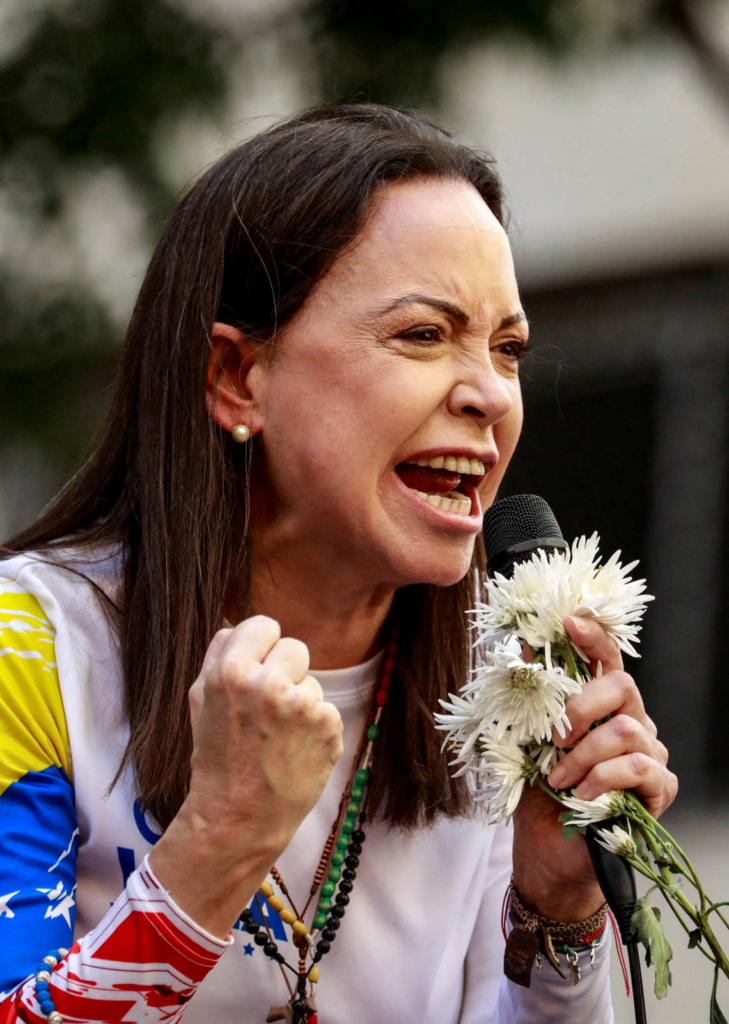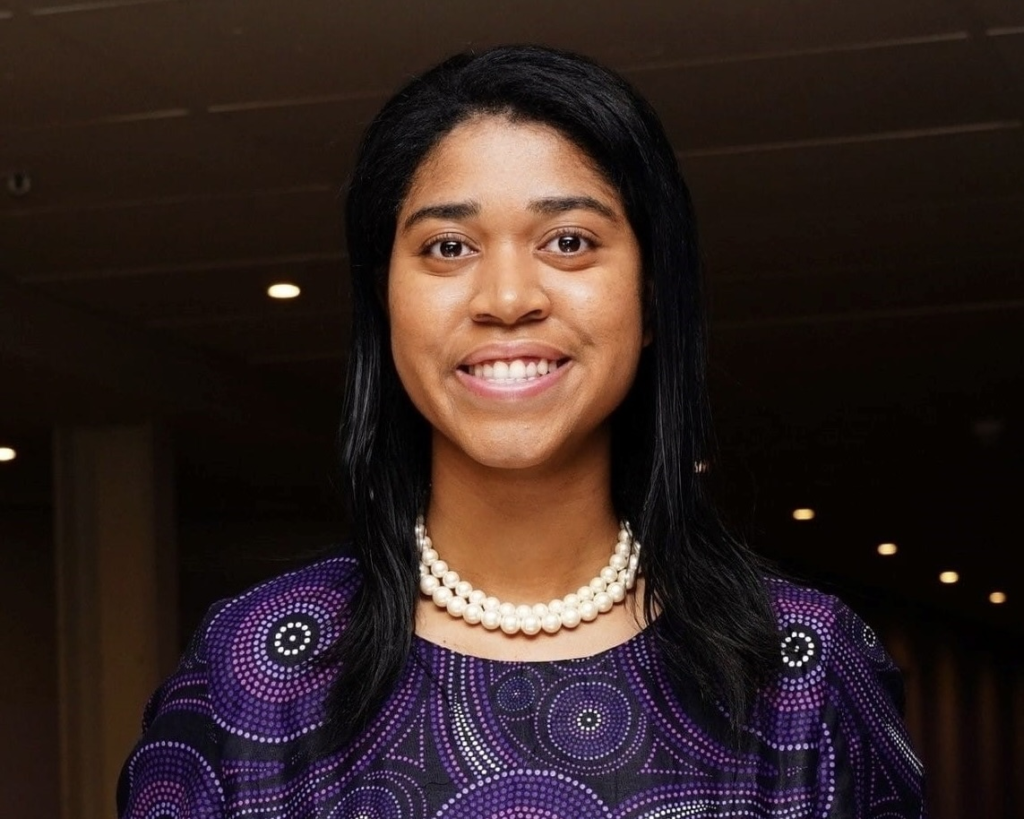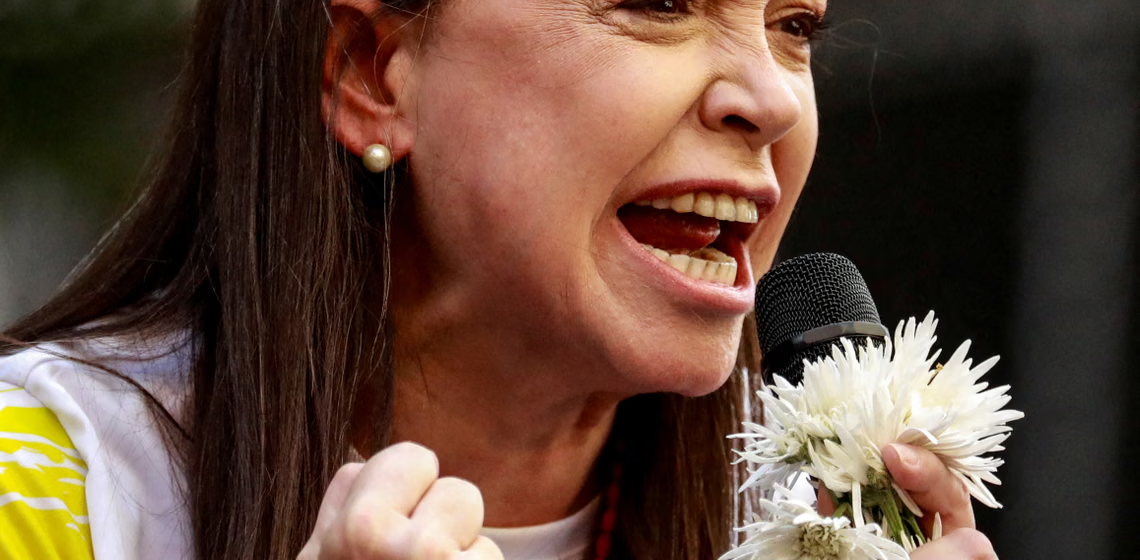On October 10, 2025, the Norwegian Nobel Committee awarded the 2025 Nobel Peace Prize to Venezuelan opposition leader María Corina Machado, recognizing her “tireless work promoting democratic rights for the people of Venezuela and for her struggle to achieve a just and peaceful transition from dictatorship to democracy.

Who Is María Corina Machado?
Machado, born in Caracas in 1967, has been one of the most visible and persistent faces of resistance in Venezuela. Despite Venezuelan courts barring her from the 2024 presidential election, she won the opposition primary in 2023. When officials invalidated her candidacy, she threw her support behind Edmundo González, whom many Venezuelans believe legitimately won the opposition’s mandate. Throughout this time, she has been under intense threat, persecution, and has lived in hiding.
What the Decision Means and Why It Sparked Debate
The prize carries both a strong symbolic and financial weight: Machado will receive 11 million Swedish kronor (about US$1.2 million), along with the medal and diploma on December 10 in Oslo, the date set in Alfred Nobel’s will.
What adds sharpness to this decision is the global expectation from some quarters that Donald Trump, currently US President, might win. Trump and his supporters have made multiple claims and public appeals for the Peace Prize, pointing to their diplomacy and “peace efforts.” Critics of the Nobel committee, particularly some in the White House, have accused it of being political in picking Machado instead of Trump. The committee, however, emphasized that its decision was based on the criteria in Nobel’s will, not external pressure.
A further controversy: Venezuelan government sources argue that Machado is part of a broader opposition that, while vocal and courageous, has not actually overthrown the Maduro regime. Supporters counter that she embodies civilian resistance, democratic ideals, and moral leadership qualities that go beyond mere political power. The question many are asking: Should the Peace Prize reward change already achieved, or struggle that has yet to succeed?
Machado’s Struggle in Context
Under President Nicolás Maduro, one of her main challengers, Venezuela has faced accusations of electoral fraud, suppression of opposition, jailing or barring opposition figures, and widespread economic collapse. For example, in January 2025 Machado went into hiding after the courts blocked her from candidacy. Protests erupted after the National Electoral Council, dominated by Maduro loyalists, declared official results seen by many observers as manipulated. More than 20 people were reported dead during protests and crackdowns.
Despite all this, Machado has stayed in country, setting up civic platforms like Súmate decades ago to monitor elections and document human rights abuses. Her international recognition already included having won the Sakharov Prize in 2024 and becoming a strong candidate in various institutional nomination.

Lessons & Parallel with Nigeria
While Venezuela’s situation is unique, authoritarianism, electoral rigging, economic collapse, the Machado Nobel Prize has echoes in Nigeria’s own confrontations with corruption, democracy, and activism.
Nigeria has a Nobel Peace laureate, Wole Soyinka, awarded in 1986 for his resistance to military rule, criticism of oppression, and influence as a writer and public intellectual. Like Machado, Soyinka did not seize formal political power; his influence was moral and rooted in activism, institutions, speech, and civil society. Both highlight how the Nobel Peace Prize often rewards resilience, dissent, and moral leadership more than electoral victories.
Emerging Voices and a Generational Shift
Another Nigerian recent example: Zuriel Oduwole, a 22-year-old female advocate, was nominated for the 2025 Nobel Peace Prize for her work on education, gender equality, and peace mediation. Though she didn’t win, her nomination reflects Nigeria’s increasing visibility in global peace and human rights conversations.

Oduwole’s candidacy is itself controversial: some argue a 22-year-old cannot yet match the gravitas typically associated with Nobel laureates. But her nomination underscores a generational shift: youths are no longer passive observers but active, global voices in politics, democracy, and peace.
By drawing this connection, Machado’s prize can inspire Nigerians and Nigerian youth to believe that their struggles for better governance and human rights might also one day be recognized on the global stage.
Why This Matters Globally
Machado’s award isn’t just a victory for Venezuelans, it sends a message to authoritarian regimes, global democracy advocates, and movements everywhere: peaceful resistance, even when suppressed, can win recognition. It undercuts expectation that addressing abuses through powerful negotiation or political insider deals is the only path.
On the flip side, the criticisms that surface about political bias, about what actions merit a Peace Prize, are not new. They highlight the perennial tension within the Nobel system: what counts more, aspiration and courage, or actual achieved peace?
Conclusion
María Corina Machado’s Nobel Peace Prize represents more than one woman’s struggle; it symbolizes a movement, a generation demanding democracy under threat. As Venezuela watches, the world watches. Her award may become a guidepost for activists, including those in Nigeria, who resist not because it’s safe, but because it’s necessary.
But if there is one thing this moment teaches us, it’s that symbolism matters. A Nobel Peace Prize, awarded amid global debate and political posturing, can elevate a struggle from national headlines to the conscience of the world. For the youths of Nigeria who often feel overlooked and powerless, the Machado win is a reminder that courage, persistence, and clarity of purpose can echo far beyond your borders.
Would it have been easier, safer, or more agreeable to give the prize to someone like Donald Trump? Maybe to some. But the Nobel committee’s pick suggests that the world may now, more than ever, be ready to honour not the powerful, but the principled.
We’re amazed to have you as a member of our community. Your time here means so much to us. Just to let you know, we organise workshops, seminars, and youth engagement programmes. Therefore, we indulge you to partner with us for sponsorship and other forms of social enterprise. Find other related articles on our website and follow us on Instagram for more updates.
Thank you!


Leave a Reply